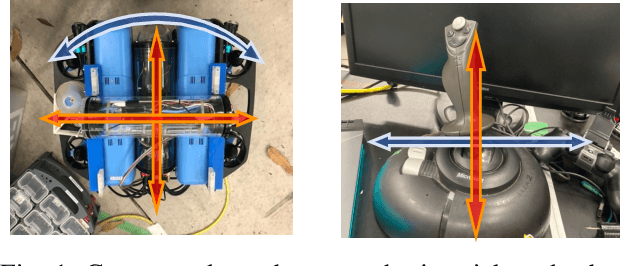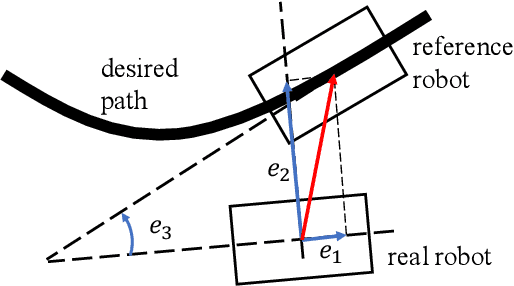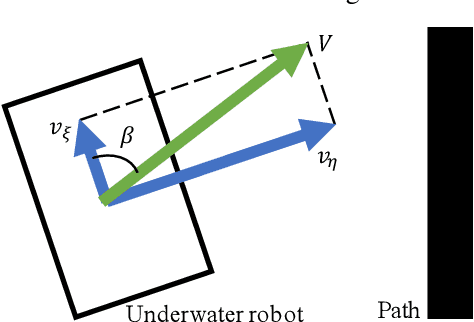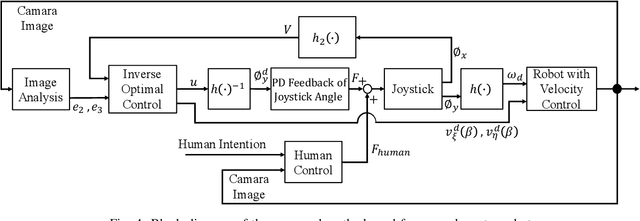Cooperative Path-following Control of Remotely Operated Underwater Robots for Human Visual Inspection Task
Paper and Code
Mar 25, 2022



Remotely operated vehicles (ROVs) have drawn much attention to underwater tasks, such as the inspection and maintenance of infrastructure. The workload of ROV operators tends to be high, even for the skilled ones. Therefore, assistance methods for the operators are desired. This study focuses on a task in which a human operator controls an underwater robot to follow a certain path while visually inspecting objects in the vicinity of the path. In such a task, it is desirable to realize the speed of trajectory control manually because the visual inspection is performed by a human operator. However, to allocate resources to visual inspection, it is desirable to minimize the workload on the path-following by assisting with the automatic control. Therefore, the objective of this study was to develop a cooperative path-following control method that achieves the above-mentioned task by expanding a robust path-following control law of nonholonomic wheeled vehicles. To simplify this problem, we considered a path-following and visual objects recognition task in a two-dimensional plane. We conducted an experiment with participants (n=16) who completed the task using the proposed method and manual control. The results showed that both the path-following errors and the workload of the participants were significantly smaller with the proposed method than with manual control. In addition, subjective responses demonstrated that operator attention tended to be allocated to objects recognition rather than robot operation tasks with the proposed method. These results indicate the effectiveness of the proposed cooperative path-following control method.
 Add to Chrome
Add to Chrome Add to Firefox
Add to Firefox Add to Edge
Add to Edge